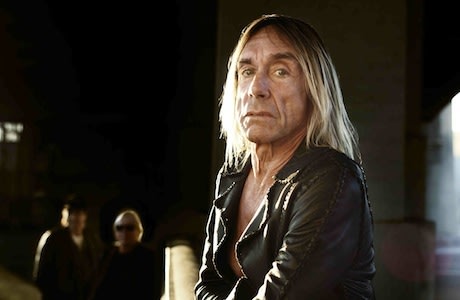This title will pose a problem to anyone valuing form over content. This four-chapter DVD is essentially a compilation of three long interviews conducted in 1988 by then-19-year-old director Gil Margulis. Referred to as a "Detroit rock" documentary, Blowing Fuses is nevertheless essentially about the Stooges and the MC5, although the Deluxe Edition features exclusive interviews with Jon Sinclair (MC5's manager), Russ Gibb (of legendary Detroit venue the Grande Ballroom) and Scott Morgan (the Rationals, Sonic's Rendezvous Band). Margulis explains during the opening sequence that these interviews led to the making of Detroit rock documentary Back on Shaking Street, on which he comments: "The documentary I made, called Back on Shaking Street, was primitive and made on a shoestring budget out of my own pocket. But it was well received and loved by fans all over the world." Although a quick perusal of the Web reveals that Margulis has been a serial entrepreneur for over 20 years and founded a non-profit organization called Friends of Israel Firefighters, information about his "well received" documentary made on a shoestring budget is nonexistent online: no trace of it on Ebay, IMDB, YouTube, Discogs, Wikipedia, Gemm, Amazon or major MC5 fan sites. Having recently retrieved these long-lost interviews, Margulis describes how he got into the MC5 as a Westfield Highschool student in the mid-'80s, when he discovered that the White Panthers' official band had played a legendary concert at his school 20 years earlier. Despite the clumsy introduction, the Uncle Floyd-quality visuals and the litigious credentials, credit must be given: these three conversations that took place in an era when multimillionaire rappers did not wear Cro-Mags-patched designer jackets are absolutely worth watching. Chain-smoking his way through anecdotes and complaints about electronic music and "today's technology," Ron Asheton turns out to be not only entertaining but factual. Interviewed in his mother's kitchen, beer-guzzling Ron recalls the Stooges' first-ever concert on Halloween night, as well as memories of their early recording sessions with John Cale, before taking Margulis to the summer sublet house that became the band's practice room in Ann Arbour, where his brother played on an oil drum and a snare, while Iggy pounded the Farfisa organ. Rob Tyner's interview is the most noteworthy segment of this DVD, as it's apparently his last ever interview (Tyner died in 1991, after suffering a heart attack behind the wheel of his car, which was parked in front of his house). Interrogated in the comfort of his home in Berkeley, MI, Tyner reflects upon the impact of politics on MC5 and the notion of the-survival-of-the-fittest, as applied to music, as a result of the band playing teen clubs and battle of the bands at the beginning of their career. Also visibly discouraged by the state of pop music in 1988, he goes on to explain: "I don't want to speak for the others — they maybe got into rock'n'roll for chicks — but for me, it was for artistic purposes." Against Tyner's romanticism, Dennis "Machinegun" Thompson's segment comes off as the downer express sequence of this three-hour-long DVD. Thompson, through whom Margulis was originally able to trace all the other interviewees, sets the tone early on. With a wall-mounted machinegun for a background, the ex-MC5 drummer, in full Cloud-Nine-era George Harrison garments (wraparound mirror shades and Hawaiian shirt), gets considerably confrontational, and sometimes incongruous, with his 19-year-old interlocutor: "[…] all the philosophy, all the beautiful idealism was not killed when the revolution died, it was buried […]" "[…] between you and I and the fencepost, it's bullshit. We weren't the vanguard or the revolutionary band of anything. We embraced it as people came to embrace it." Ultimately, Thompson reveals that, to him, the MC5's political agenda was at best a strong stand against the Vietnam War: "politics were really mostly John Sinclair's stuff […] the press fabricated the rest."
(MVD)Blowing Fuses Left and Right: The Legendary Detroit Rock Interviews
Gil Margulis

BY Ralph ElawaniPublished Sep 26, 2013